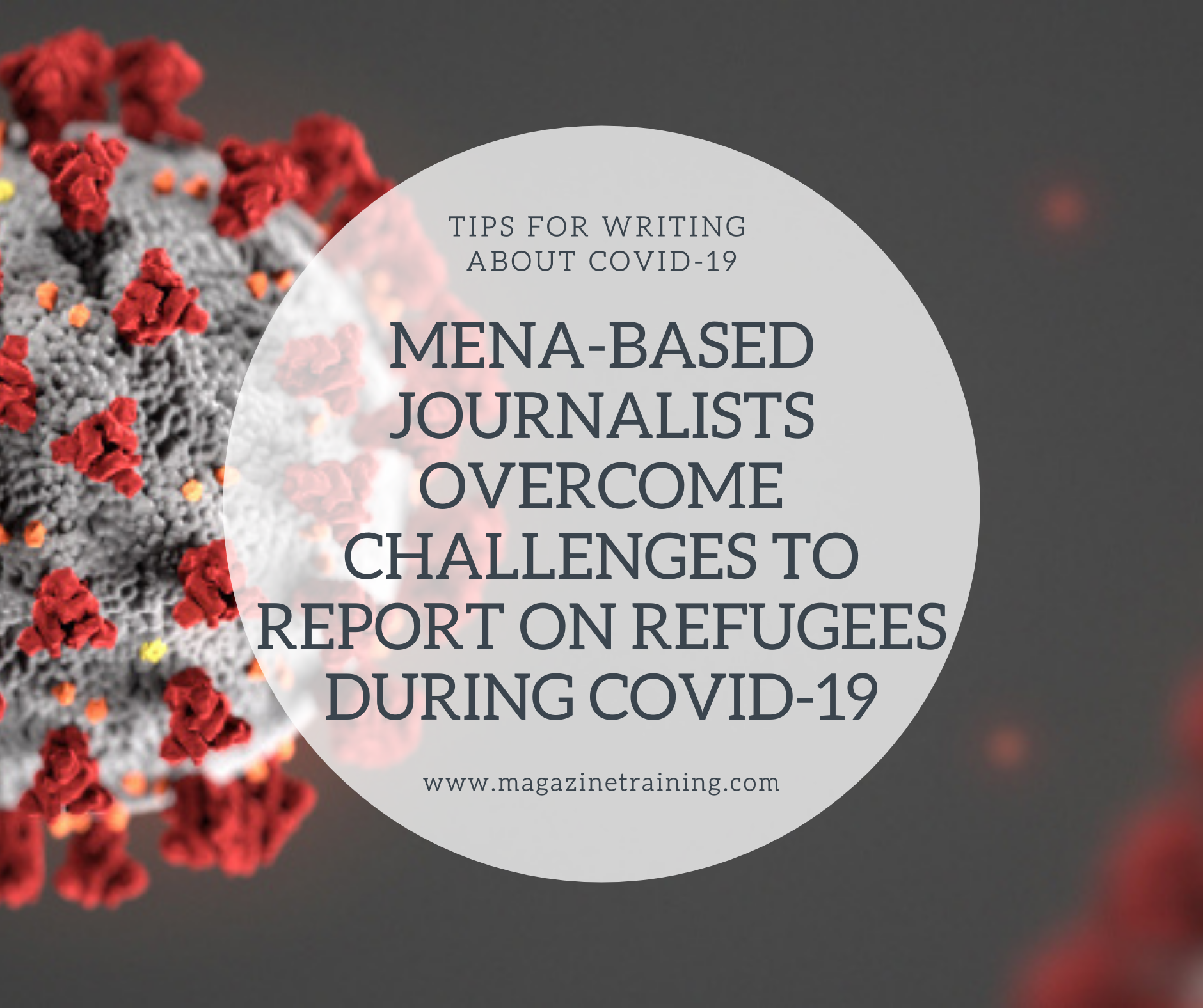
COVID-19 has exacerbated already difficult conditions in many countries in the Middle East and North Africa — especially those experiencing economic problems and armed conflict. These conditions are often reflected among vulnerable groups, including among people experiencing poverty, and refugees.
In an ICFJ-Facebook Journalism Project training program, journalists from countries in the region produced in-depth, compelling stories focused on the impacts of COVID-19 on refugee communities. Here’s a look at reporting projects in Yemen, Iraq and other MENA countries, and the challenges journalists navigated to carry out their work.
Yemen
Freelance Yemeni journalist Sahar Mohamed Abdul Razzaq produced a report published by Al-Mushahed about international funding distributed in Yemen to confront COVID-19. Razzaq said she had difficulty accessing refugee camps due to the unsafe conditions. Communicating with organizations that work with displaced persons and refugees was also a challenge.
Journalist Rania Farhan reported on the status of women in a region that lacks basic health services. She traveled long distances to interview refugees in person, which security issues in the country made more challenging. Her final report was published on the Yemeni news channel, Belqees TV.
Freelance journalist Rafat Almamary‘s report, titled Yemen’s Marginalized People: Between the Hell of War and the Pandemic was published by Al-Mushahed. “The most important difficulties I encountered while preparing the story was that the main source who was infected with the coronavirus was afraid of appearing in the media,” he said. “Other challenges included the security conditions and long distances to photograph the camps for displaced people, as well as their proximity to fire lines and clashes.”
Journalist Bassam Al-Qadhi published a piece on Al-Ayyam, called Refugees in Yemen Face the Coronavirus Without Water. Among the challenges he navigated, Al-Qadhi struggled to obtain approval from the security authorities in order to film in the refugee camps.
In a short documentary, journalist Haitham Alqaoud spotlighted the lives of African refugees in Yemen and how they arrived in the country. He shares their stories in light of COVID-19, which has increased the suffering of Yemenis and refugees alike. Alqaoud struggled with Yemen’s internet connectivity issues, which made communicating with others more challenging. He also had difficulty obtaining permits to allow him to photograph the camps, and received no response from UN agencies regarding his request to travel to the camps to conduct interviews with refugees.
by سارة عبدالله, International Journalists Network
Related posts
Magazine Training International’s mission is to encourage, strengthen, and provide training and resources to Christian magazine publishers as they seek to build the church and reach their societies for Christ.

